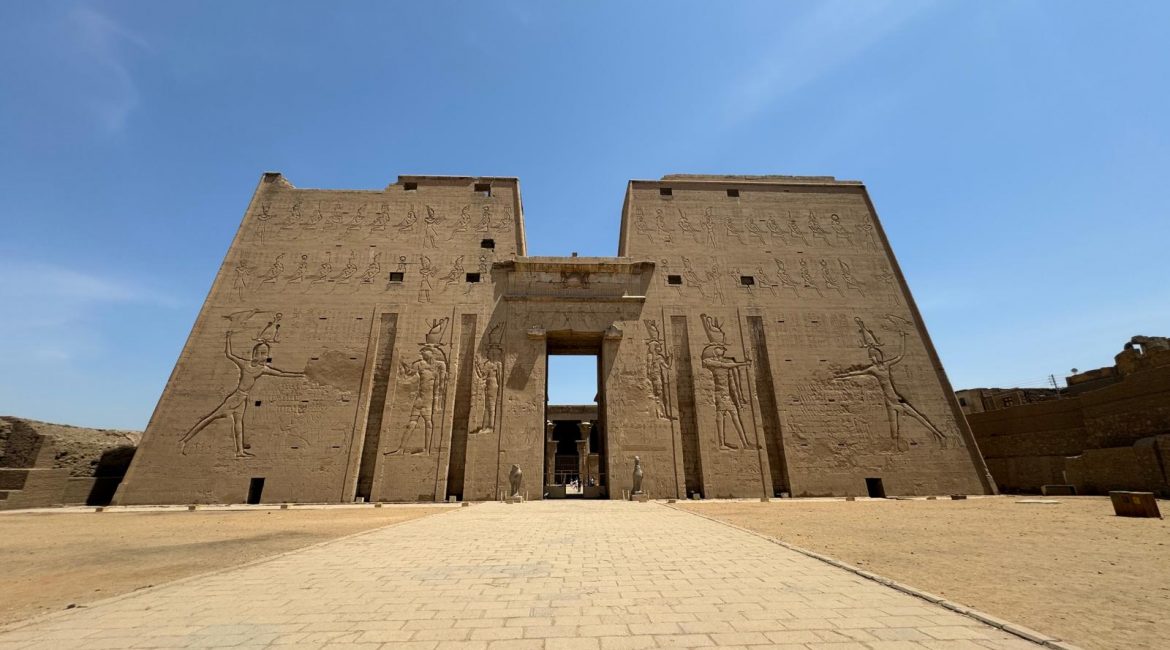One of the greatest blessings of a human life is to maintain gratitude. Cultivating the habit of being grateful means having self-sustaining, regenerative joie de vivre. The more cynical among us like to remind people that they find the expression of such limitless gratitude tacky, or even insufferable. But gratitude need not be gratuitous. Its sincere dwelling in one’s heart can elevate positive feelings, expand our perception of time, and feel more connected to the world, our sentient brothers and sisters, or other people.
The experience of the feeling of awe is not entirely the same, yet can overlap with the emotion of gratitude. Even the traditional sense of mysterium tremendum, which could hint at slightly less edifying feelings like a “fearful respect” of the wrath of God or a divine power’s inconceivable presence. The Huayan jing, or Avatamsaka Sutra, is very good at conveying this, in similar fashion to how Krishna reveals himself to Arjuna or Yahweh appears to Moses as a burning bush).
Greater Good Magazine, which is part of the larger project of the same name, published a piece in 2018 that having your mind blown, so to speak, can indirectly lead to personal growth, making one more generous, reflective, and humble. The article argues that breaking out of our daily routines, which can revolve around the inevitably insular chase for wealth, status, and personal gain, is most easily done by seeking out and welcoming experiences of awe. Seeing vast landscapes of natural majesty, or ancient temple ruins or lofty churches, goosebumps and dropped jaws, awe experiences are remarkable in their own right. Having experiences of awe often lead to the “smaller self effect,” which make us feel more insignificant.
I am not so sure about the research that feeling insignificance is equivalent to feeling diminished, however (or at least, I do not agree with the semantics of that word). This sense of smallness is actually a sense of relief, of assurance that we really are a part of an infinitely greater whole, that our problems, even serious ones, are really not that terrible in the grand scheme of the endless cosmos, or Dharmadhatu. Likewise, we can rejoice and take pride in our accomplishments, but let go more easily when we fail, forgive ourselves for our shortcomings, and avoid the overweening pride or arrogance that characterizes so many falls.
In a recent Buddhistdoor View, our platform presented the case that “space fatigue” (a cynical trend, as with so many, on social media, that presents space travel as no longer magical, even despair-inducing) can be reclaimed. Our editorial suggests: “A sense of awe, the overcoming of international differences, a forward-looking perspective, and a realization of how small many of our problems truly are, are the greatest gifts that come from looking toward the stars.

“So how can we reclaim a sense of awe in the face of modern technology and distractions? The answer lies in returning to the deep roots of our spiritual traditions. For Buddhists, there are many paths to awe, from full-body prostrations and the nianfo (recollection of the Buddha) to pilgrimage to holy sites or the simple practice of mindfulness. By taking up any of these practices with sincere devotion, we can cultivate a deeper awareness of our world and the interconnectedness of all life.”
In a post titled, “Braving the Flames to Learn the Dharma of Amitabha-Recitation,” Master Huijing writes: “In modern astronomical terms, a great chiliocosm corresponds to a galaxy. Shakyamuni Buddha emphasized that even if the entire galaxy were engulfed in flames, we should bite the bullet by braving them if that’s what it takes to learn the Dharma of Amitabha-Recitation. In other words, Shakyamuni Buddha exhorts us to endure and overcome all challenges in our pursuit of his Dharma no matter how arduous or perilous the journey may be.”
For a Pure Land Buddhist, the ultimate awe is the very notion that a mere invocation of Amitabha Buddha, which is only six characters in Chinese, constitute the keys to Buddhahood. As such, Amitabha’s compassion is vaster that all the galaxies or chiliocosms and our gratitude should reflect that. Even as we strive to be awestruck in everyday life rather than being distracted by our smartphones, we can even admit that the allure of our age’s incredible digital world is, despite all its pitfalls, also worth gratitude.
With that acknowledgement made, let us depart from our small screens and head back out to bask in great universe of awesome things.
See more
Eight Reasons Why Awe Makes Your Life Better
Related features from BDG
Buddhistdoor View: Awe in the Age of Distraction – Space Travel and Spiritual Growth


